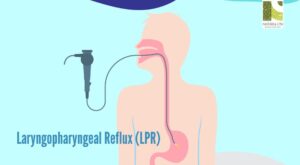The Truth About Midlife Crisis: Breakdown or Breakthrough?

“Is this all there is?”
If you’ve ever caught yourself asking this question in your 30s, 40s, or 50s—you’re not alone. What many label as a midlife crisis is more than just an emotional cliché of buying flashy cars, switching careers, or making impulsive life changes. It’s a deeply personal turning point, often misunderstood, but rich with the potential for growth.
What Exactly is a Midlife Crisis?
Coined in the 1960s by psychologist Elliott Jaques, the term refers to a period of emotional turmoil typically occurring between the ages of 35 to 55, when individuals question their life choices, purpose, and mortality.
But scientifically speaking, not everyone experiences a “crisis.” Instead, for many, it’s a midlife transition — a psychological adjustment to changing roles, aging, and unmet aspirations.
Common Signs:
Questioning life direction or achievements
Unexplained dissatisfaction despite success
Desire for drastic change—career, relationships, appearance
Increased reflection on aging or mortality
Emotional restlessness, anxiety, or even depression
Why Does It Happen?
Midlife represents a natural checkpoint in our psychological development:
Neurological Factors: Brain imaging studies suggest emotional regulation evolves in midlife, but so does awareness of time’s finiteness.
Life Milestones:
- Children leaving home
- Health changes
- Career stagnation or burnout
- Loss of parents or peers
All these events amplify introspection and the need for personal redefinition.
Is It Really a “Crisis”?
The idea of a midlife crisis is often exaggerated by pop culture. Research from the American Psychological Association (APA) indicates only 10-20% of people undergo a true psychological crisis at midlife.
For many, it’s a turning point—an opportunity to realign life with their authentic desires.
Midlife: Breakdown or Breakthrough?
You get to choose.
Many remarkable life reinventions have emerged from this phase:
Starting new businesses
Learning new skills or hobbies
Deepening relationships
Pursuing spiritual growth or mindfulness
The discomfort of midlife can become a catalyst for clarity, if approached with self-awareness.
How to Navigate a Midlife Transition
Self-Reflection: Journaling, counseling, or spiritual practices like mindfulness can bring clarity.
Health Check: Midlife often triggers health concerns—regular screenings and lifestyle changes boost confidence and vitality.
Avoid Impulsive Decisions: Life changes are valid but make them thoughtfully, not reactively.
Seek Meaningful Goals: Shift focus from status to fulfillment—community service, creative outlets, or personal growth.
Normalise Conversations: Discussing emotions reduces stigma; midlife reflection is a human, healthy process.
A New Chapter, Not the End
Midlife isn’t the beginning of decline—it’s the opportunity for rediscovery. It invites you to pause, reflect, and rewrite the script of your life with wisdom, courage, and authenticity.
Remember, the real crisis isn’t aging—it’s living without purpose. And it’s never too late to realign your path. Read a real life story here, which will definitely give you goosebumps.
References :
1. Midlife in the 2020s: Opportunities and Challenges
2. Why do Middle-Aged Adults Report Worse Mental Health and Wellbeing than Younger Adults?
3. Midlife and Mental Health
4.Midlife Isn’t a Crisis. It Should Be a Boost.





